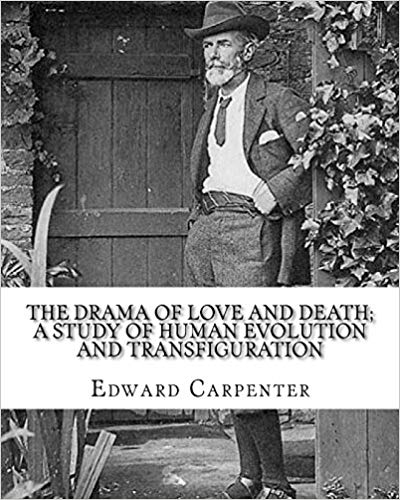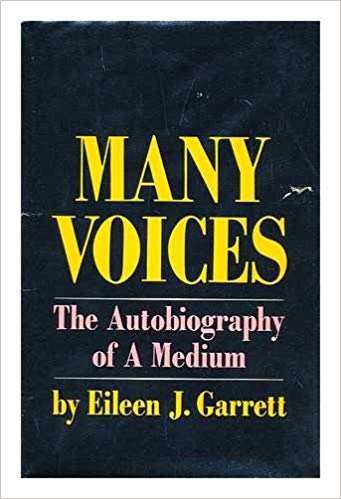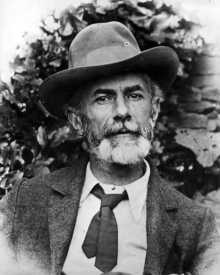
Hi there….hope you are enjoying the dog days of summer. I want to share with you that I have unearthed Eileen Garrett’s personal copy of Edward Carpenter’s “The Drama of Love and Death” that was published in 1912 and that she kept with her as she traveled around which is striking as she rarely had a “home” per se and as such illustrates how much he and his writings meant to her which she often stated. The copy I have is signed by her and marked up as to sections she found important to her so its really fascinating to have a window into what struck her which helped to formulate her theories or understanding of psychic phenomena and her own abilities.

Carpenter was a poet and social philosopher who befriended Mrs. G during World War I in London reassuring her that her burgeoning mediumship was evidence that she had achieved a state of what he called “cosmic consciousness” with her powers of perception and that therefore she was not crazy with her psychic experiences. He noted her practicality, speaking of her administrative skills, which certainly was on the money given her track record for starting several businesses and her crowning achievement of founding the PF in 1951.

As she noted in “Many Voices”, her last autobiographic volume “He warned me to look and listen teaching me that the ancient creeds were themselves projections of the human mind….He taught me that deep down in the human mind there is the blazing light of world consciousness, so deep within each one that the vast majority of people are afraid to find out.” It seems that having piqued Mrs. G’s unlimited curiosity he was instrumental in the path she continually chose for herself.
Selectively quoting from a Note to Chapter VIII on trance phenomena within ” The Drama of Love and Death” I find of interest statements: The phenomena connected with mediums and séances have been so amazing and unexpected that they have often produced a kind of fear and dismay. The religious people have been terrified at the prospect of having to acknowledge miracles not connected with the Church…The scientific fold (in many or most quarters) being always just on the point of completing their pet scheme of the universe—what it may happen to be at the time—have naturally been in no mood to admit new facts which would totally disarrange their systems; and have, therefore with a few brilliant exceptions, consistently closed their eyes or looked another way. And the general public, not without reason, has feared to embark on a subject, which might easily float it away from the dry land of practical life, into one knows not what sea of doubt or even delusion.” Personally I think this sums up rather succinctly the problem we face in studying the paranormal.

Carpenter goes on to state that “Mediums and trance-phenomena—prophecy, second sight, speaking in strange tongues, the appearance of flames and lights, and of figures apparently from the dead—are things that have been known all down history, and recognized almost as a matter of course, both among quite primitive peoples like the Kaffirs, or the Aleuts or the Mongolians, or among the more cultured like the Greeks, Romans, the Hindus, Chinese and so forth. The Bible teems with references to wizards and necromancers and the story of the witch of Endor gives us a penetrating glimpse into what was evidently a common practice of ‘consultation.’ These phenomena have never been so common as to break up and disorganize the routine of ordinary life, yet they have always been there, and recognized, as on the fringe of borderland—in somewhat the same way as the knowledge of recognition of Death does not interfere with daily life or prevent us making engagements, though we know it may do so at any time. And beyond any direct uses that trance-communication and manifestations may have now, or may have had in the past, we may fairly suppose that as examples of real things and of a real world lying just outside the sphere of our ordinary and actual experience they may be of immense value—both as delivering us from a cramped and petty belief that we have already fathomed the possibilities of the universe, and as giving us just a hint and a glimpse of directions in which we may fairly look for the future.”
There is much else to be gleaned from Carpenter’s writings and I will in future blogs share his statements that not only Garrett reacted to but I do and I believe you will too.